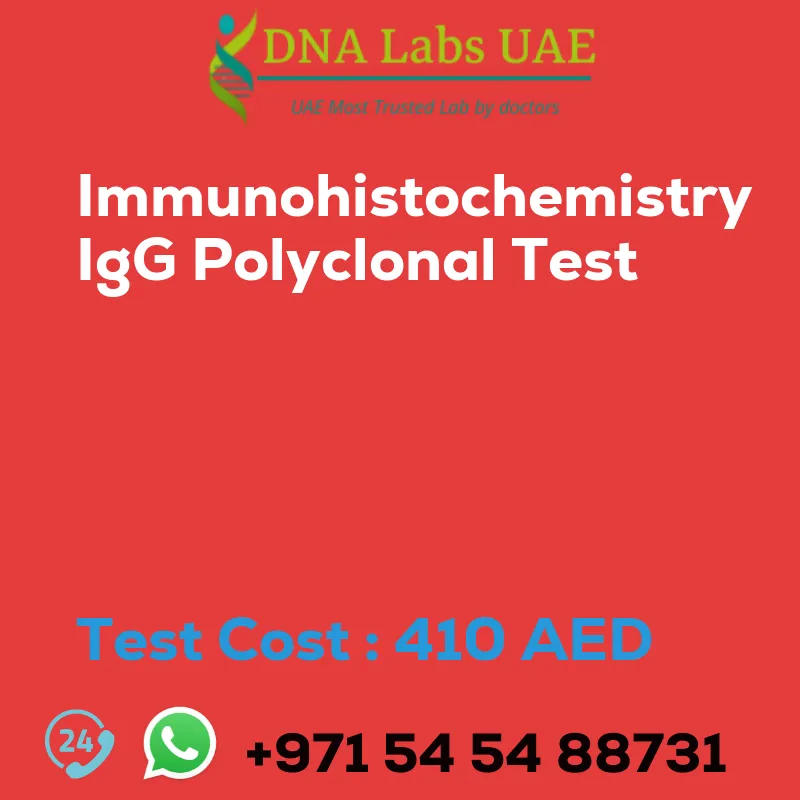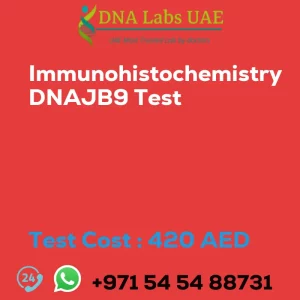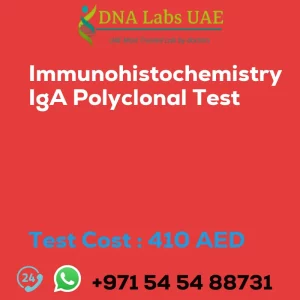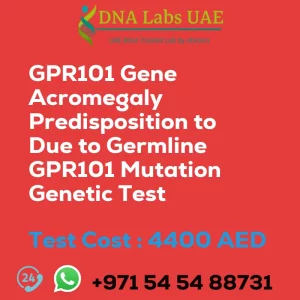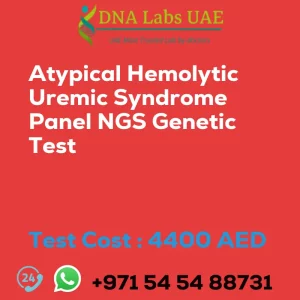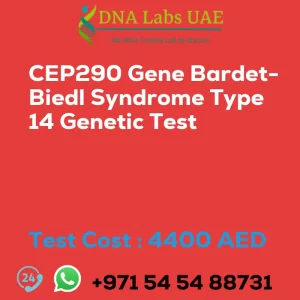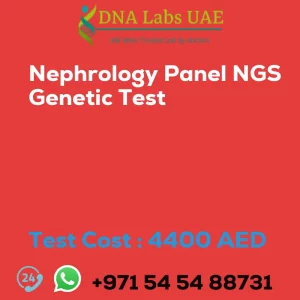IMMUNOHISTOCHEMISTRY IgG POLYCLONAL Test
At DNA Labs UAE, we offer the IMMUNOHISTOCHEMISTRY IgG POLYCLONAL Test for the diagnosis of various disorders of the kidney and skin. This test is performed using immunohistochemistry techniques to detect specific proteins in tissue sections using antibodies.
Test Details
The IMMUNOHISTOCHEMISTRY IgG POLYCLONAL Test involves the use of polyclonal antibodies against IgG to detect its presence in tissue samples. IgG is an important immunoglobulin class that plays a crucial role in the immune response. It helps in the recognition and neutralization of pathogens and regulates immune responses.
Test Components and Price
The cost of the IMMUNOHISTOCHEMISTRY IgG POLYCLONAL Test is AED 410.0. To perform this test, submit tumor tissue in 10% Formal-saline or a Formalin-fixed paraffin-embedded block. The sample should be shipped at room temperature. Additionally, provide a copy of the histopathology report, site of biopsy, and clinical history.
Report Delivery
The report for the IMMUNOHISTOCHEMISTRY IgG POLYCLONAL Test is delivered daily by 6 pm for samples. The report block takes 5 days, while tissue biopsy and tissue large complex reports take 5 and 7 days, respectively.
Method
The IMMUNOHISTOCHEMISTRY IgG POLYCLONAL Test is performed using immunohistochemistry techniques.
Test Type
The IMMUNOHISTOCHEMISTRY IgG POLYCLONAL Test is used for the diagnosis of disorders of the kidney and skin.
Referred by
This test can be referred by neurologists, dermatologists, and pathologists.
Pre Test Information
Before performing the IMMUNOHISTOCHEMISTRY IgG POLYCLONAL Test, please provide a copy of the histopathology report, site of biopsy, and clinical history.
Test Procedure
The IMMUNOHISTOCHEMISTRY IgG POLYCLONAL Test involves the following steps:
- Tissue preparation: Tissue samples are collected and prepared for sectioning, including fixation, embedding, and cutting into thin sections.
- Antigen retrieval: If necessary, antigen retrieval methods are used to expose the target antigen by reversing the cross-linking caused by fixation.
- Blocking: Non-specific binding sites in the tissue sections are blocked to reduce background staining using a blocking agent such as serum or protein.
- Primary antibody incubation: The tissue sections are incubated with the primary antibody, which is a polyclonal antibody against IgG.
- Secondary antibody incubation: After washing off unbound primary antibody, a secondary antibody is applied. This secondary antibody is conjugated to a detectable label, such as an enzyme or fluorescent molecule, and it binds to the primary antibody, amplifying the signal.
- Visualization: The detection label on the secondary antibody allows visualization of the IgG antibody binding using various methods, such as enzyme-substrate reactions or fluorescence microscopy.
- Counterstaining: In some cases, counterstaining with dyes such as hematoxylin or eosin is performed to provide contrast and aid in the interpretation of the results.
Test Results
The result of the IMMUNOHISTOCHEMISTRY IgG POLYCLONAL Test will indicate the presence and distribution of IgG in the tissue sample. This information can be useful in diagnosing certain diseases or conditions, as well as understanding the immune response in the tissue.
| Test Name | IMMUNOHISTOCHEMISTRY IgG POLYCLONAL Test |
|---|---|
| Components | |
| Price | 410.0 AED |
| Sample Condition | Submit tumor tissue in 10% Formal-saline OR Formalin fixed paraffin embedded block. Ship at room temperature. Provide a copy of the Histopathology report, Site of biopsy and Clinical history. |
| Report Delivery | Sample Daily by 6 pm; Report Block: 5 days Tissue Biopsy: 5 days Tissue large complex : 7 days |
| Method | Immunohistochemistry |
| Test type | Disorders of Kidney, Disorders of Skin |
| Doctor | Neurologist, Dermatologist, Pathologist |
| Test Department: | |
| Pre Test Information | Provide a copy of the Histopathology report, Site of biopsy and Clinical history. |
| Test Details |
Immunohistochemistry (IHC) is a technique used to detect specific proteins in tissue sections using antibodies. The IgG (polyclonal) test refers to the use of polyclonal antibodies against IgG to detect its presence in tissue samples. IgG is an immunoglobulin (antibody) class that plays a crucial role in the immune response. It is the most abundant antibody in the bloodstream and is involved in the recognition and neutralization of pathogens, as well as in the regulation of immune responses. The IgG (polyclonal) test in immunohistochemistry involves the following steps: 1. Tissue preparation: Tissue samples are collected and prepared for sectioning. This may involve fixation, embedding, and cutting into thin sections. 2. Antigen retrieval: If necessary, antigen retrieval methods are used to expose the target antigen by reversing the cross-linking caused by fixation. This step helps improve antibody binding. 3. Blocking: Non-specific binding sites in the tissue sections are blocked to reduce background staining. This is usually done using a blocking agent such as serum or protein. 4. Primary antibody incubation: The tissue sections are incubated with the primary antibody, which in this case is a polyclonal antibody against IgG. The primary antibody specifically binds to IgG present in the tissue. 5. Secondary antibody incubation: After washing off unbound primary antibody, a secondary antibody is applied. This secondary antibody is conjugated to a detectable label, such as an enzyme or fluorescent molecule. It binds to the primary antibody, amplifying the signal. 6. Visualization: The detection label on the secondary antibody allows visualization of the IgG antibody binding. This can be done using various methods, such as enzyme-substrate reactions or fluorescence microscopy. 7. Counterstaining: In some cases, counterstaining with dyes such as hematoxylin or eosin is performed to provide contrast and aid in the interpretation of the results. The result of the IgG (polyclonal) test in immunohistochemistry will indicate the presence and distribution of IgG in the tissue sample. This information can be useful in diagnosing certain diseases or conditions, as well as understanding the immune response in the tissue. |

